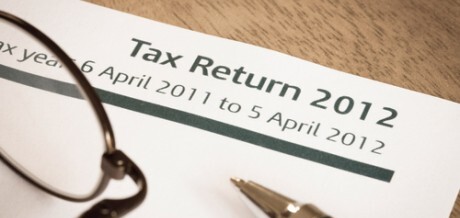
Obama Wins: Bush Tax Cuts Hang in the Balance
On November 6th, President Obama secured a win to serve out a second presidential term which, for most in the House signals difficult negotiations between Democrats and Republicans over the fate of the Bush-era tax cuts. In the balance hangs nearly $100 billion in automatic spending cuts, and the more than 50 expiring tax extenders, which include the alternative minimum tax (AMT) patch for tens of millions of taxpayers. The President’s re-election leaves lingering doubt about an eventual year end tax agreement over long-term tax reform while the IRS is calling for action so they can issue 2013 forms.
The Impact on the Individual Tax Payer
If Obama retains enough support for his tax plan, the year-end tax strategies will demand much more focus from higher-income taxpayers. The President has called for higher tax rates on individuals who make above $200,000 and families with incomes above $250,000. He has suggested 36 percent and 39.6 percent income tax rates for higher-income individuals. The President also supports a maximum capital gains rate increase from 15 percent to 20 percent and a dividend rate rise from 15 percent to 36 percent or 39.6 percent for higher-income taxpayers. Additionally, individuals will pay a 3.8 percent Medicare contribution surtax on net investment income which goes into effect on January 1, 2013.
The Bush-Era Tax Cuts Expire
The Bush-era tax cuts are quickly nearing expiration and legislators must come to some agreement. The new Obama era plan essentially calls for increased taxes on higher-income individuals. With 2012-focused tax legislation hanging in the balance, some speculate that Congress will try to buy some time by enacting a three-month extension of Bush-era tax cuts. What are the ramifications if they don’t either grant an extension or enact the new law? Wage withholding at the higher tax rates would become mandatory for all taxpayers at all income levels. Also take home pay will also be immediately reduced if Congress does not extend the employee-side payroll tax holiday, or enact some replacement for it. The employee-share of OASDI is scheduled to return to 6.2 percent instead of 4.2 percent (up to the 2013 Social Security wage base of $113,700). Proponents of an extension maintain that the economy cannot take the hit on consumer spending that would inevitably occur without an extension on the payroll tax holiday; opponents argue that it is temporary tax relief that the nation can no longer afford. In short if Congress approves the President’s tax strategy, the individual income tax rates would be: 10, 15, 25, 28, 33, 36, and 39.6 percent for 2013 and subsequent years.
California Takes an Additional Tax Hit
In California, the voter approval of Prop 30 results in an increase in California income taxes starting with this 2012 tax year. These new California tax rates will be effective to the end of 2018 and are as follows:
- The tax rate on individuals with income $250,000 to $300,000, and joint-filers with income $500,000 to $600,000, will increase 1% from 9.3% to 10.3%.
- The tax rate on individuals with income $300,000 to $500,000, and joint-filers with income $600,000 to $1,000,000 will increase 2% from 9..3% to 11.3%
- The tax rate on individuals with income more than $500,000 and joint-filers with income more than $1,000,000 will increase 3% from 9.3% to 12.3%
Further, there is an additional 1% tax for incomes over $1,000,000 under the previously approved California Mental Health Services Tax. The result is a maximum California income tax rate of 13.3% for single filers with income of more than $500,000 or joint filers with income of more than $1,000,000.
If you are in a higher tax bracket and concerned about all these modifications, now might be a great time to seek out the advice of a Certified Public Accountant in the Los Angeles area who will help you navigate these new rates. At my Woodland Hills Accounting firm, we are helping a number of clients prepare for the new tax increases and would be happy to assist you as well. Give us a call at 818-593-6777 to set up a consultation.
NOV




